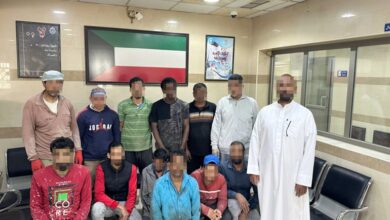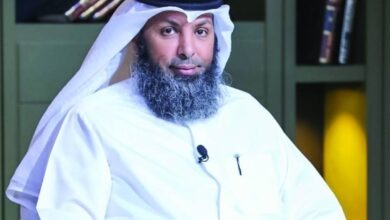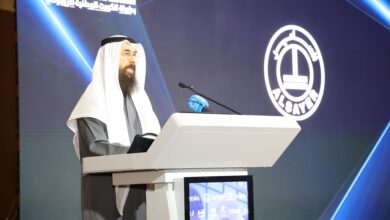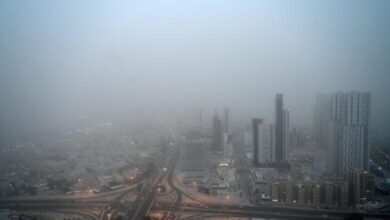Responsible Journalism Promotes Equitable, Inclusive, Cohesive Societies
The new media law will significantly promote responsible freedom of expression, and provide the necessary space for diverse ideas and views, said Al-Mutairi adding that the goal of the new media law is to build a modern media system aligned with the goals of the ‘New Kuwait 2035’ vision.
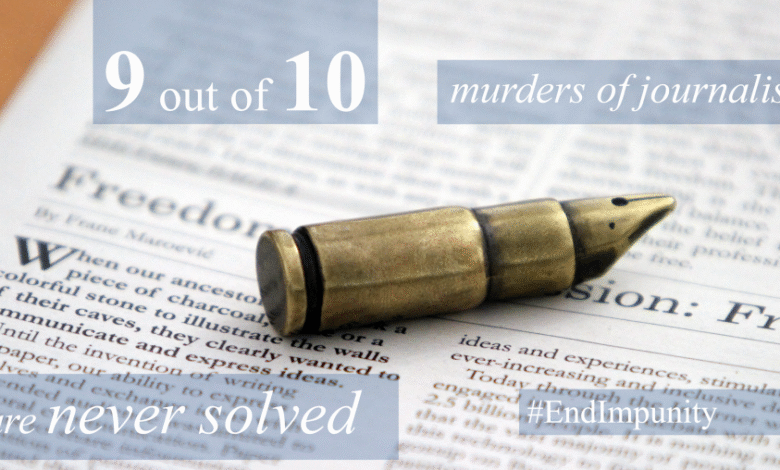
By Reaven D’Souza
Executive Managing Editor
Kuwait is in the process of introducing a comprehensive new media law that could bring about significant changes to its media regulations. The new law aims to update and consolidate existing statutes to bring them in line with international laws and modern media practices. The proposed law also seeks to introduce a new licensing framework that imposes obligations on both traditional and electronic media, including in their content compliance, and other operational requirements.
In mid-October, Minister of Information and Culture and Minister of State for Youth Affairs Abdulrahman Al-Mutairi reaffirmed that the upcoming media regulation law will represent a qualitative shift in the development of Kuwait’s media system, paving the way for a more advanced and balanced media environment. He added that the new legislation will be comprehensive and integrated, encompassing all forms of visual, audio, and electronic media while keeping pace with technological advancements and future media trends.
In addition, the draft law will establish a clear framework for media content principles, aimed at strengthening professional responsibility, ensuring responsible media practices, and preserving freedom of expression within the bounds of national values and societal ethics, said Al-Mutairi.
He also stressed that the law does not include prison sentences, except in two specific cases—transgression on the divine and the prophets, and transgression on the self of His Highness the Amir. Pointing out that Kuwaiti media remains committed to responsible freedom, Al-Mutairi expressed his confidence in the media’s adherence to the law to preserve the national identity and ensure respect for the rights and freedoms of others.
The new media law will significantly promote responsible freedom of expression, and provide the necessary space for diverse ideas and views, said Al-Mutairi adding that the goal of the new media law is to build a modern media system aligned with the goals of the ‘New Kuwait 2035’ vision.
The importance of unbiased, responsible journalists and credible journalism cannot be ignored or overemphasized in today’s world. Responsible freedom of expression is key to the efficient functioning and durability of democracies and democratic processes. Credible journalism is also vital in building trust in democratic institutions, catalyzing social transformations, promoting human rights, and bringing about the development of equitable, inclusive, and cohesive societies.
Responsible and credible journalism is of particular significance in this digital age, where deepfakes and discriminatory news tend to cloud debate in online forums. In this regard, promoting media and information literacy that enable people to engage more effectively and ethically online is vital. While freedom of expression, whether online or offline, is a fundamental right, it is not absolute; it needs to be tempered with the rights and needs of others and of society.
Responsible journalists have an obligation to recognize that their right to freedom of expression also entails responsibilities, including publishing credible and accurate content, avoiding hate speech that incites discrimination or violence against others, and operating within legal boundaries. Under certain conditions, such as to ensure public safety and health, preserve national unity and security, or protect public order, freedom of expression may be subject to restrictions, provided these limitations are lawful, necessary, and proportionate.
Journalists play several crucial roles in societies, serving as public educators, providing accurate information people need to make informed choices and engage effectively in democratic processes. Journalists act as social activists, amplifying the voice of the poor, the marginalized, and the vulnerable, raising debate on issues of public concern, and effecting policy changes and positive social transformations.
Additionally, journalists function as investigators, serving as the eyes, ears, and mouth of the public, questioning and probing people in power to uncover crimes, corruption, and social injustices; they report on human rights violations, environmental infringements, human trafficking, political misconduct, misappropriation of public funds, and other illegal activities. Ultimately, journalists contribute to making power transparent, accountable, and answerable to the public they serve.
Journalists often risk their lives while reporting from some of the most dangerous environments around the world. According to the UNESCO Observatory of Killed Journalists, more than 1,830 journalists have been murdered in their line of work since 1993, which averages over 60 journalists killed every year for the past three decades. The term journalist in UNESCO reporting mechanisms aligns with the broad interpretation of journalism as a shared function of many actors, including journalists, other media workers.
Influencers, and social media content producers. Figures from the Observatory show that the average number of journalists killed annually is on the rise, with 81 journalists killed so far in 2025. Not surprisingly, almost half of the journalist killings this year occurred in places experiencing armed conflict. With a record number of journalists killed in Gaza over the two years of conflict there, this narrow strip of land has become the deadliest conflict zone for journalists.
In Somalia, for long one of the most lethal countries for journalists, and in Sudan, since the outbreak of violence there in 2024, journalists have regularly faced intimidation, detention, violence and killings. In Mexico, the most deadly place for journalists outside of conflict zones, media personnel reporting on corruption, organized crime, and politico-narco links of the powerful are routinely ‘silenced’.
Atrocities against female journalists are also on the rise, with women journalists frequently targeted with physical violence and online threats of gendered disinformation, surveillance, deepfakes and other forms of harassment. A recent survey of women journalists revealed that more than 73 percent of them have faced threats, intimidation, or insults online.
Regrettably, impunity for crimes against journalists remains entrenched in places around the world, with perpetrators facing little or no accountability, investigation, or prosecution. According to the UNESCO Observatory over 85 percent of journalist killings recorded around the world since 2006 still remain unresolved, or have been abandoned.
Most lethal attacks on the press are rarely investigated or prosecuted, and when cases do move forward, justice is usually slow, with proceedings stretching on for years and often failing to bring those really responsible to justice. The immunity enjoyed by powerful perpetrators of blatant abuses, crimes and violations of law and social norms is a global crisis, and reflects the failure of states to uphold accountability and apply the rule of law equally to all.
Under international law, nations have a clear obligation to investigate and prosecute such violations. Yet despite these obligations, there has been little tangible progress by states in reversing these trends, even as journalists continue to face increasingly hostile and dangerous environments. Failure in responding to crimes against journalists leads to eroding trust in democratic institutions, fuels attacks on rights and freedoms, and curbs the ability of journalists to function as social guardrails against public misdeeds.
While journalists are sometimes victims of collateral damage in conflicts and violences, more often than not, they are specifically targeted to silence their voices. Yet, journalist voices can never truly be silenced, for they are the cry of people in plight, they speak to fundamental human values, truths, and principles that will continue to resonate, demanding justice and accountability from those in power and the powerful.
In his message ahead of this year’s International Day to End Impunity for Crimes Against Journalists, UN Secretary General António Guterres stated: “Impunity anywhere is not only an injustice to the victims and their families, it is an assault on press freedom, an invitation to further violence, and a threat to democracy itself…
When journalists are silenced, we all lose our voice. Let us stand together to defend press freedom, demand accountability and ensure those who speak truth to power can do so without fear.”







